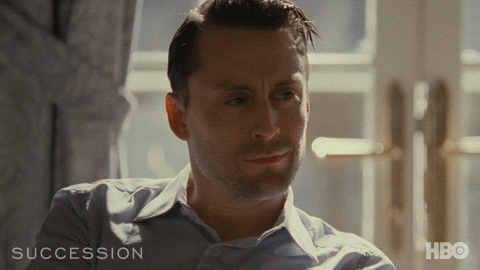What a Roman Emperor Can Teach Modern Leaders About Not Being a Jerk
Claudius behind the curtain
Today's guest post comes from the wonderfully unpredictable
. She’s part poet, part truth-teller, and part “did-she-just-say-that?” philosopher. Reading her stuff is like thinking you’re getting a casual stroll through the park and then realizing—oh wait, this is actually a trapdoor into something way more profound.If you're not subscribed to her Substack yet, what are you waiting for? Hit that button and let’s get started on her post 👇
He wasn't bold, he wasn't brash, and he definitely didn't look the part. But Claudius, the Roman underdog no one saw coming, just might be the leadership blueprint we actually need in 2025.
Let's set the scene.
It's 41 AD, and Rome is having—how shall we put this—a week.
Emperor Caligula, madman, megalomaniac, possible horse promoter, has just been assassinated by his own guards. The power vacuum is immediate, chaotic, and bloody. You know, typical Roman Wednesday.
Enter Claudius.
Well, sort of. He didn't exactly "enter" as much as he was found.
Hiding. Behind a curtain. Shaking.
It's not exactly the kind of posture that screams the next ruler of the greatest empire on Earth.
Claudius wasn't a war hero. He wasn't a senator's darling. He wasn't even respected by his own family. His limp, stutter, and obsession with old scrolls made him more of a punchline than a politician.
And yet—yet—the Praetorian Guard yanked him from the drapes and said, "Sure, this guy'll do."
And they were right.
He Wasn't Supposed to Work. But He Did. Brilliantly.
Claudius reigned for thirteen years.
He expanded the empire (hello, Britannia), reformed the treasury, built harbors, repaired aqueducts, and outlived a string of conspiracies that would make Succession writers blush.
So how did someone with none of the traditional markers of leadership not just survive—but thrive—in the cutthroat ecosystem of Roman politics?
Easy.
He didn't try to be someone else.
The Anti-Steve Jobs
We're drowning in leadership porn these days. Book after book tells us we need to be bold, charismatic, visionary, and intimidating—preferably while wearing the same black turtleneck every day.
Meanwhile, ancient Rome's accidental emperor was over here, saying, "Hold my watered-down wine."
Claudius wasn't just an unlikely leader; he was actively dismissed as an embarrassment. His own mother called him "a monster of a man, not finished but merely begun by Dame Nature." Brutal.
Roman biographer Suetonius described him as having "weak knees that gave way under him and a head that shook." His speech was so garbled that people routinely mocked him at state functions.
In today's office, HR would've shoved this guy into a back-room compliance role faster than you can say "cultural fit."
Claudius' Awkward Assets
(A.K.A. Leadership Lessons That Aged Surprisingly Well)
The stutter made him listen. While his predecessors were busy hearing the sound of their own voices, Claudius was absorbing details. The man was a sponge in a world of hammers.
Isolation sharpened his mind. Cut out of politics for decades, he turned to history. He became a scholar of empires—including the one he'd later lead. Call it the ultimate long-game internship.
Outsider status = better perspective. He wasn't part of the boys' club, so he didn't play by its broken rules. He hired freedmen (former slaves!) into key roles. Scandalous then. Strategic now.
No military chops = real delegation. Claudius knew he wasn't a battlefield guy. So he found people who were. He trusted talent, not titles. Radical concept, right?
Hold Up—Are You Telling Me the Roman Empire Was Run by... a Middle Manager?
Basically, yes.
And that's not an insult.
Claudius led with restraint, intelligence, and systems thinking. He didn't swagger. He strategized. While other emperors held orgies, he held Senate meetings.
(Okay, he probably did both—it was Rome.)
He focused on infrastructure, legal reforms, and administrative efficiency. The stuff that gets buried under leadership TED Talks—but actually keeps a nation (or company) from imploding.
It's what Jim Collins calls Level 5 Leadership: intense personal humility mixed with a ferocious professional will. The type of person who doesn't need to be the smartest in the room—just the most accountable.
And here's the fascinating part: those traits still predict success.
A 2022 McKinsey study found that companies led by collaborative, humble leaders were:
1.4× more likely to be top performers
Had 50% higher employee engagement
And 25% lower turnover
It's almost like being less of a self-important windbag pays off.
We're Looking for Leaders in All the Wrong Places
We still worship charisma.
The booming voice. The six-point plan in PowerPoint. The LinkedIn thought-influencer energy.
But maybe the next great leader isn't tweeting bold visions or networking at Davos.
Maybe they're quietly poring over the latest customer feedback report, asking how the company can fix what actually matters.
Maybe they're not behind the podium.
Maybe they're still behind the curtain.
The Curtain Moment That Saved Our Company
My own Claudius moment happened during the 2008 financial crisis. I was working in New York's apparel district when the economy imploded—not exactly the best timing for an industry built on discretionary spending.
Hard to believe now, but back then I was the quiet one.
The person who spoke so infrequently in meetings that when I did, people would turn with that "wait, who's that again?" expression. I wasn't hiding behind actual curtains, but I might as well have been hiding behind spreadsheets and sample racks.
My boss—your typical apparel district veteran with decades of connections and a booming voice that carried through our entire showroom—had already drafted the layoff list.
Fifteen names. Fifteen lives upended during the worst job market in generations.
Something in me snapped. In a meeting I wasn't even supposed to be in, I found myself speaking up.
"What if we didn't do layoffs at all?"
The room went silent. Not the good kind.
With shaking hands but a somehow steady voice, I outlined an alternative: 20% temporary salary cuts across the board—including leadership—combined with a laser-focused plan to land a major account I'd been quietly researching for months.
"Everyone takes a hit, but everyone keeps their job," I explained. "And if we land this account, we void the cuts entirely."
My boss stared at me like I'd suggested we all start manufacturing spacesuits instead of sportswear. Then came the questions, the objections, the "that's not how this industry works" rebuttals.
But numbers don't lie. And I had a lot of them.
What followed was our company's most democratic moment. We took it to the staff: layoffs for some or salary cuts for all? The vote was unanimous. We became a company united by a single mission: land the account, save our full salaries, save our team.
People who normally guarded their industry contacts suddenly shared them. Designers who typically protected their creative process invited feedback. Our sales team, usually lone wolves, became a pack.
Four months later, we landed the account—our largest ever. True to the agreement, salaries were restored.
And that is how I became a loudmouth.
Not overnight, mind you. But that crisis moment flipped some internal switch. Once you've spoken up and seen actual results, the cost-benefit analysis of staying quiet changes dramatically.
I still wasn't the person commanding attention when I walked into rooms. I just stopped caring if I had everyone's attention before making a point worth hearing.
I didn't become some charismatic company leader overnight. I didn't suddenly start commanding rooms or giving inspirational speeches. I just did what Claudius would have done: observed the details others missed, offered practical solutions over dramatic gestures, and prioritized sustainability over short-term glory.
Power Doesn't Make You a Leader. What You Do With It Does.
Look, I'm not suggesting we all start hiding behind curtains, waiting for power to find us.
But maybe we should stop confusing leadership with performance art.
Because leadership isn't about WHO you are. It's about WHAT you do when responsibility lands in your lap.
Claudius—limping, stuttering, scholarly Claudius—built aqueducts that still stand today, expanded an empire, and reformed institutions that lasted centuries after his death.
All without a TED Talk, a bestselling book, or a personal brand.
If you ever get sidelined for not fitting the 'leadership mold,' remember:
Rome once ran better under a guy who hid behind a curtain.
Sometimes, history's most effective leaders aren't the ones who fit the mold.
They're the ones who break it.
Thank you so much for reading.









Such a great example of how a leader can grow into the role. Also a solid reminder that sometimes the best leaders aren’t the ones who come in loud and decisive—but the ones who surprise you by quietly stepping up and doing the work.
BTW Bette this was THE BEST opener "Today's guest post comes from the wonderfully unpredictable Neela 🌶️. She’s part poet, part truth-teller, and part “did-she-just-say-that?” philosopher. Reading her stuff is like thinking you’re getting a casual stroll through the park and then realizing—oh wait, this is actually a trapdoor into something way more profound." LOL
You REALLY get me lol